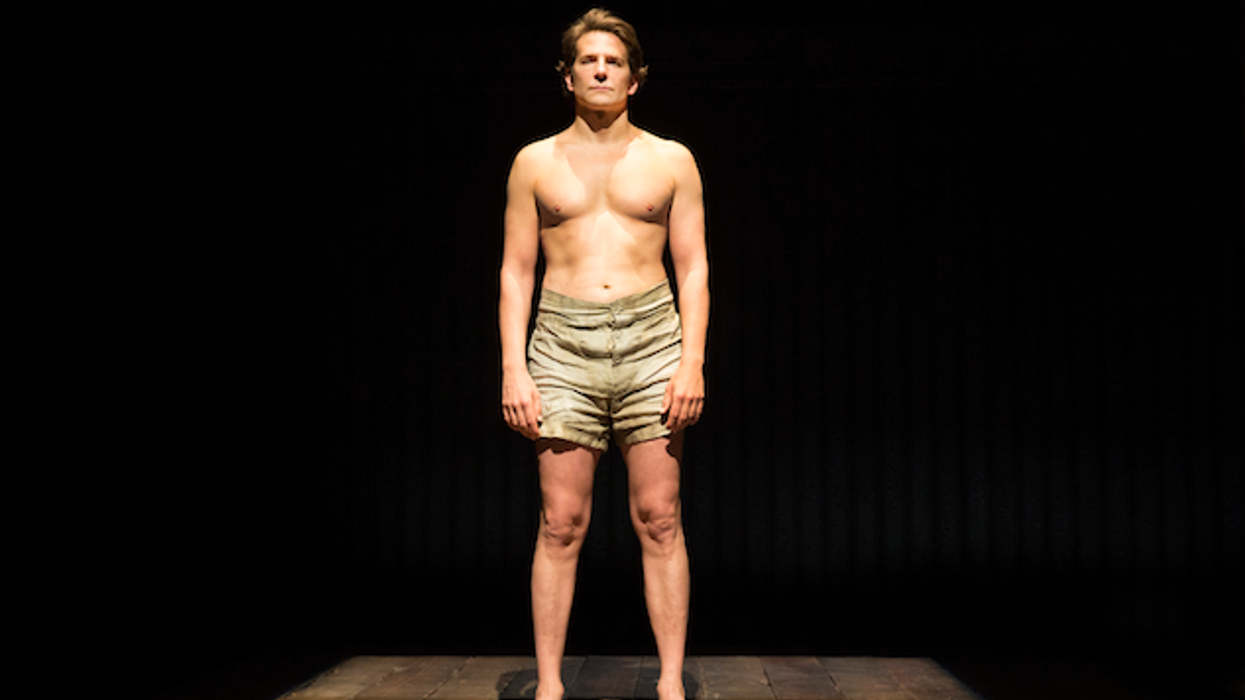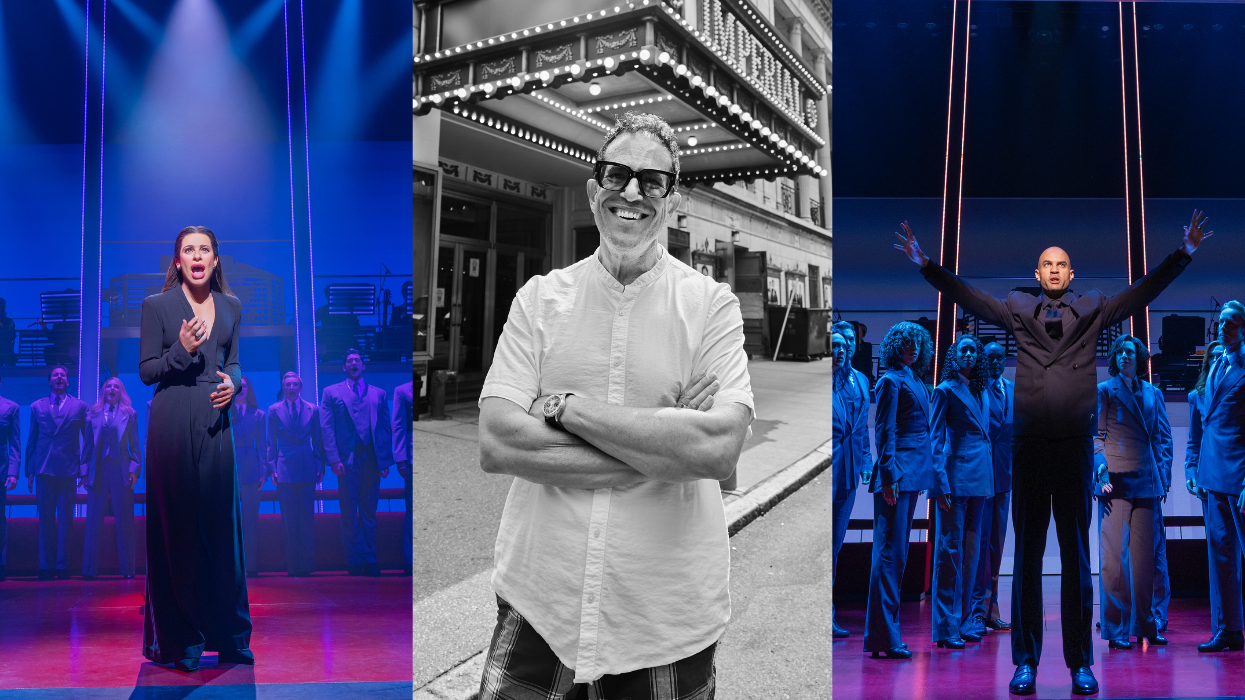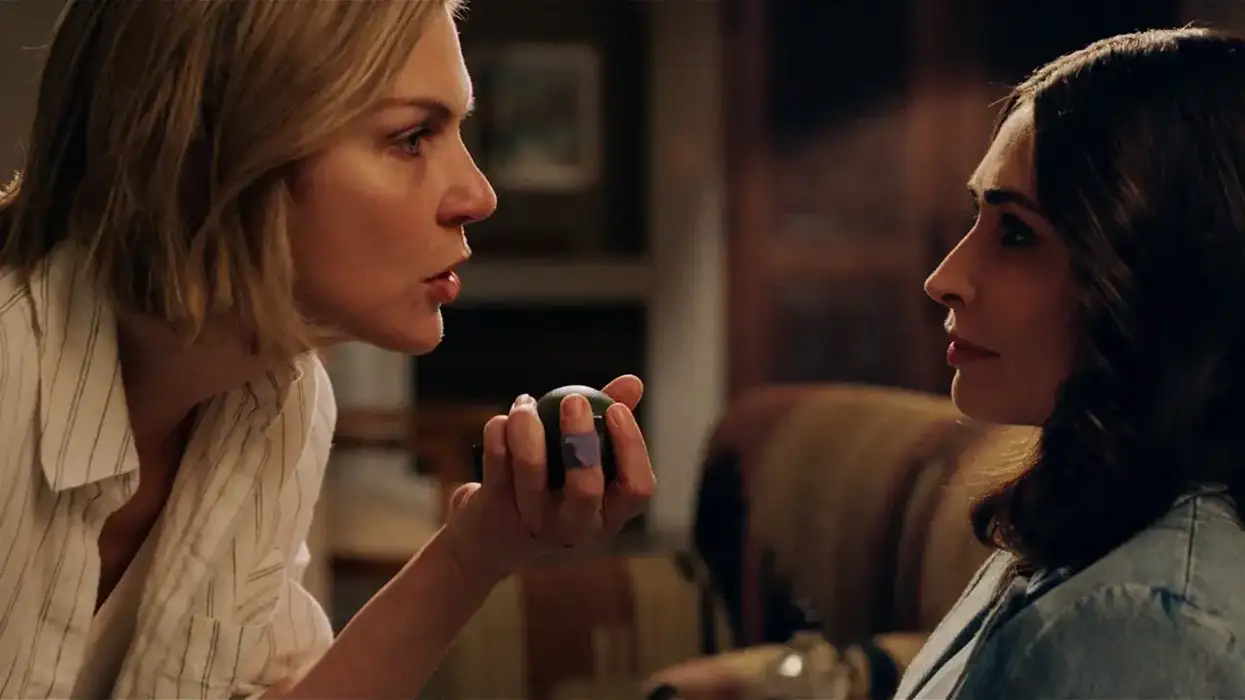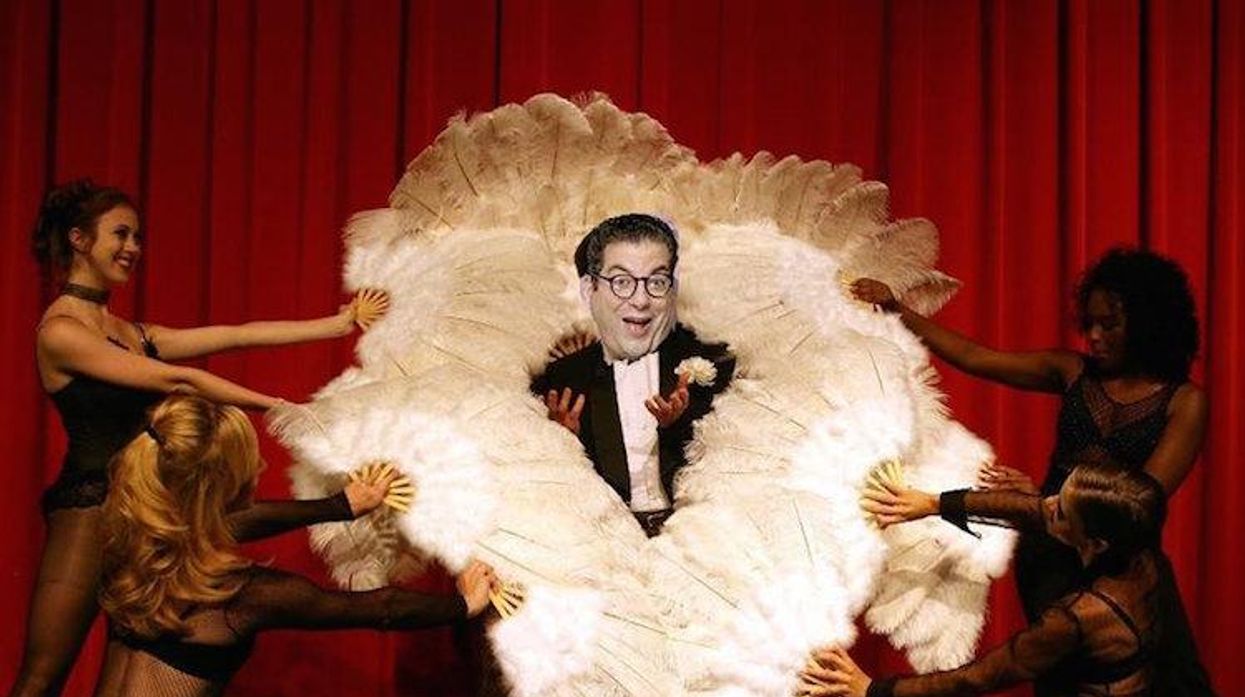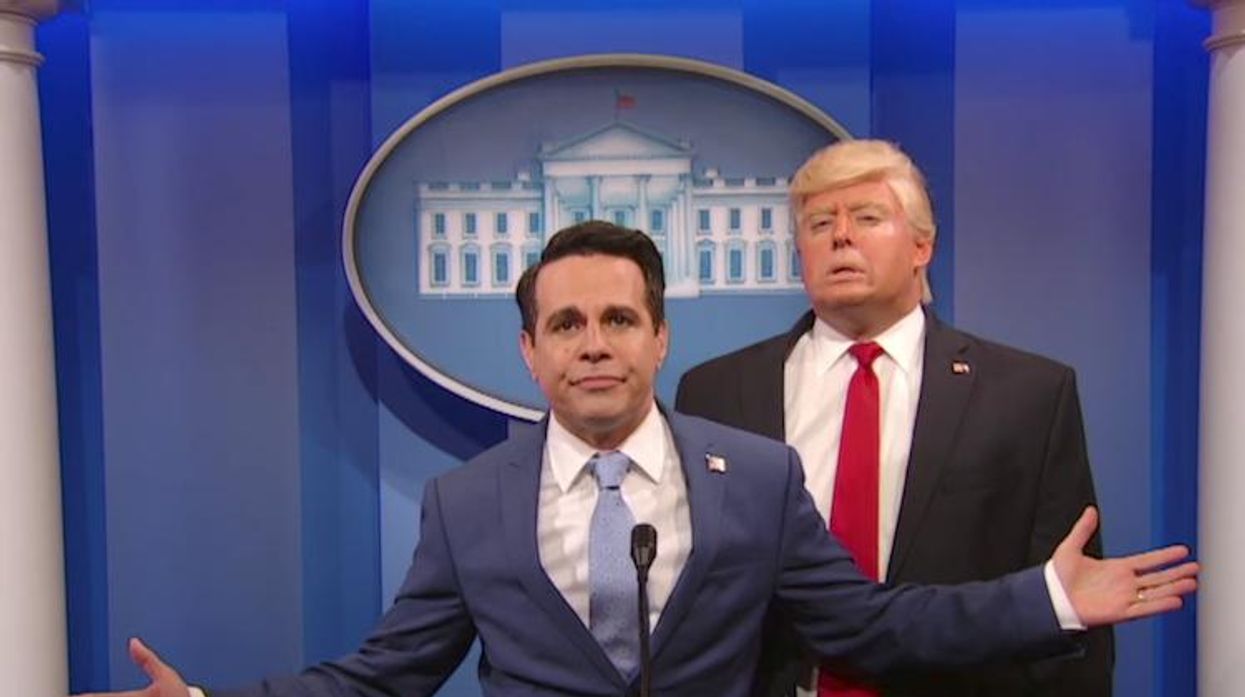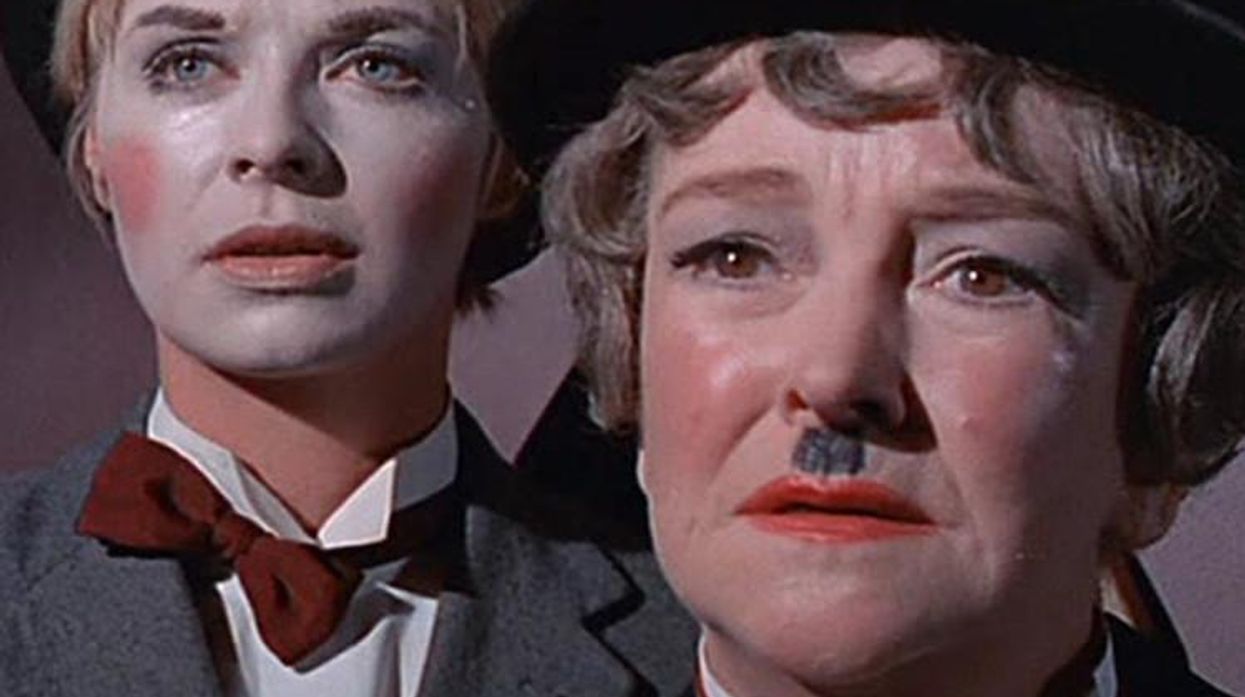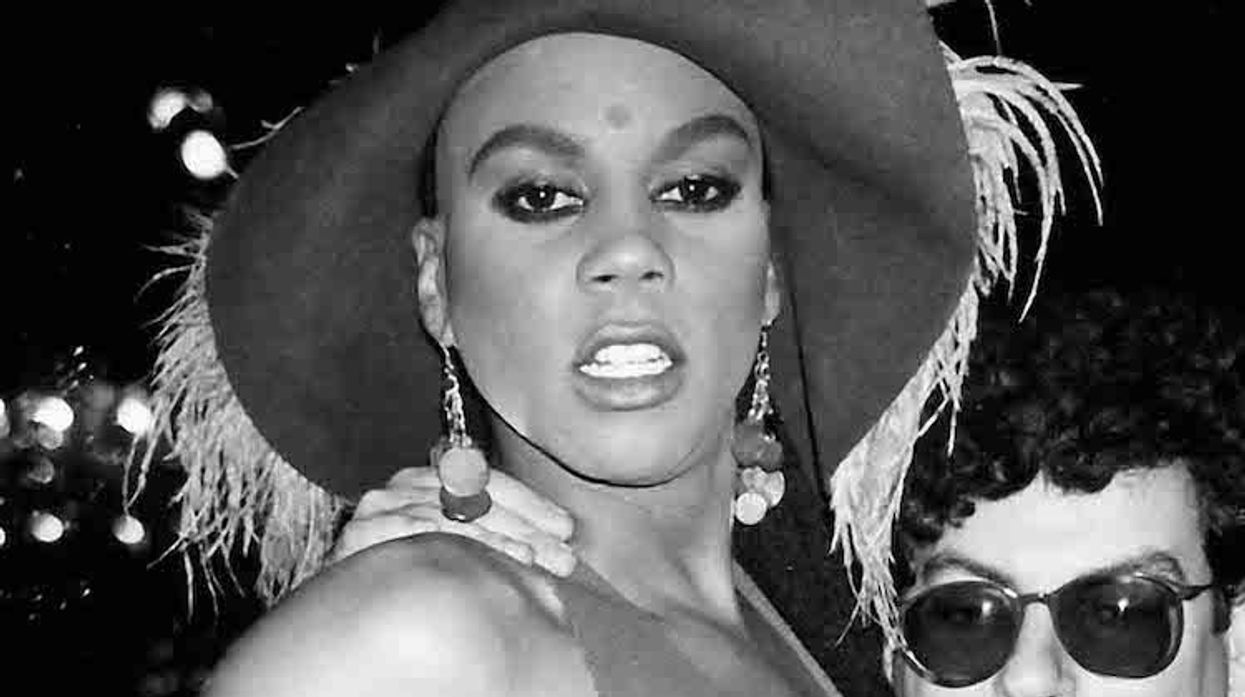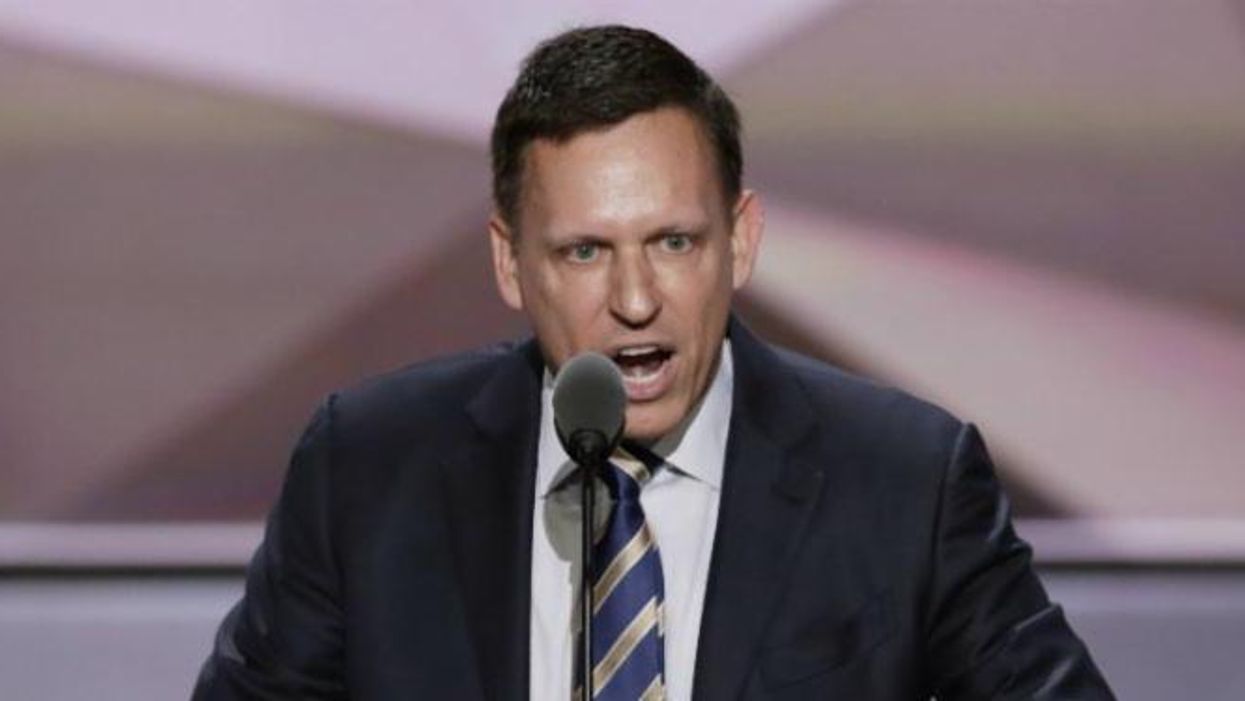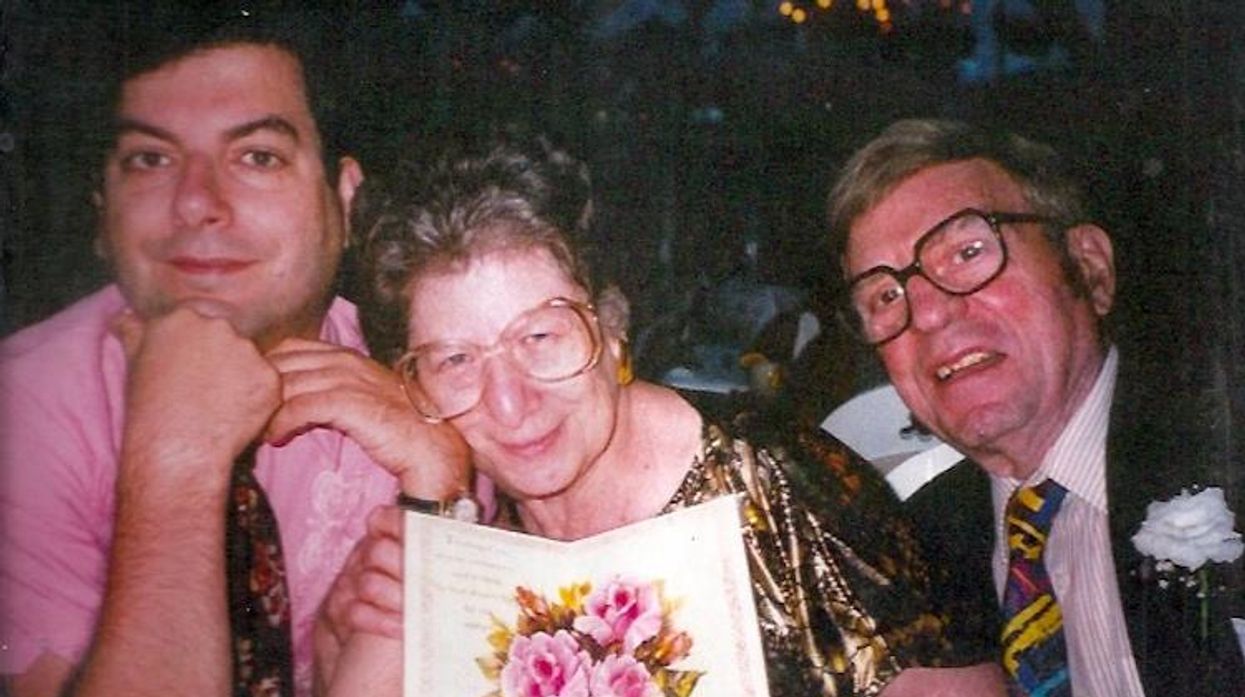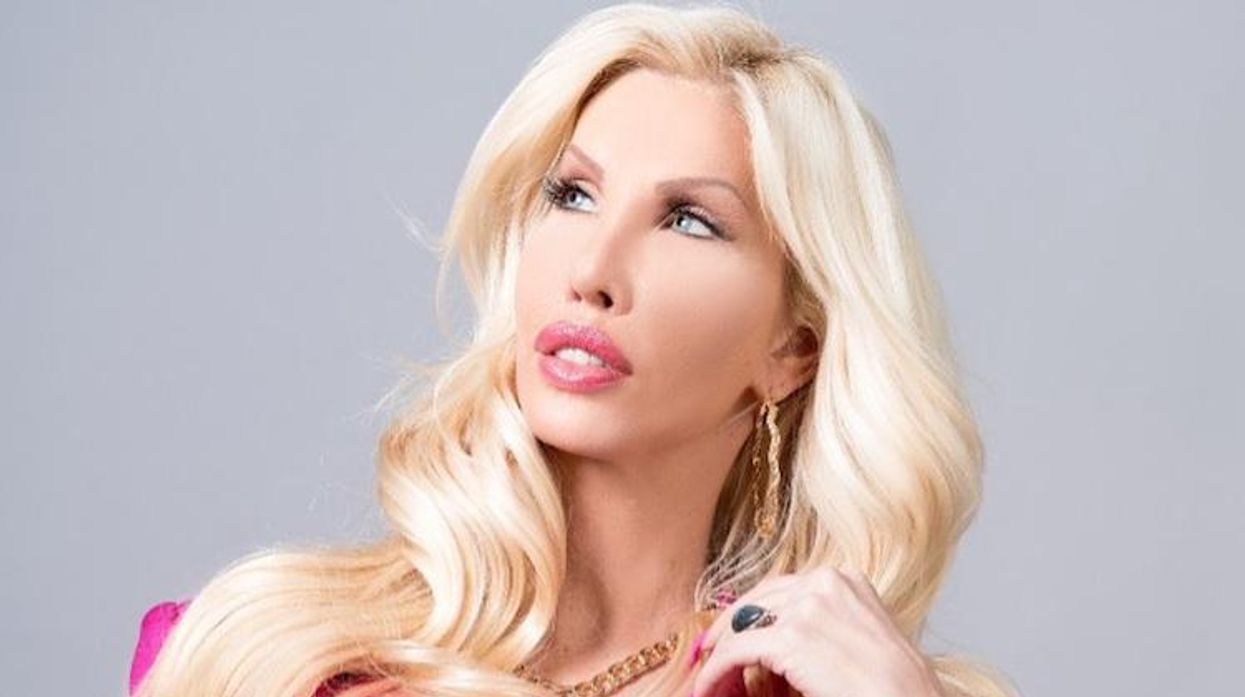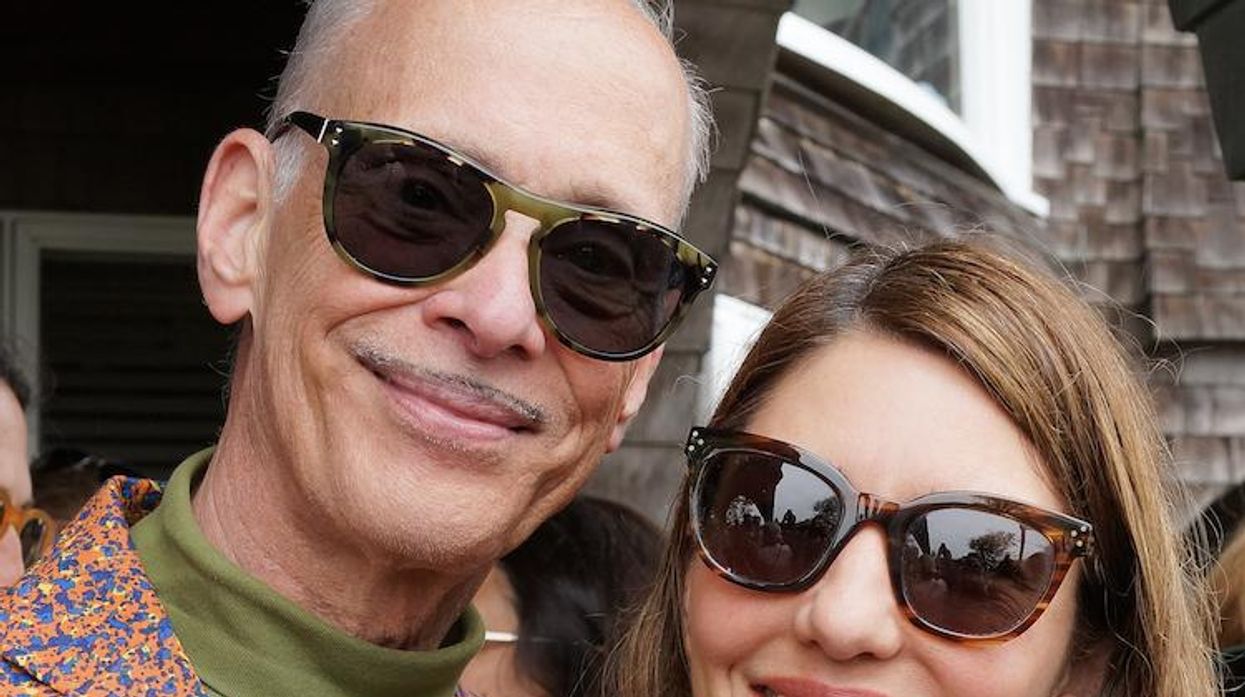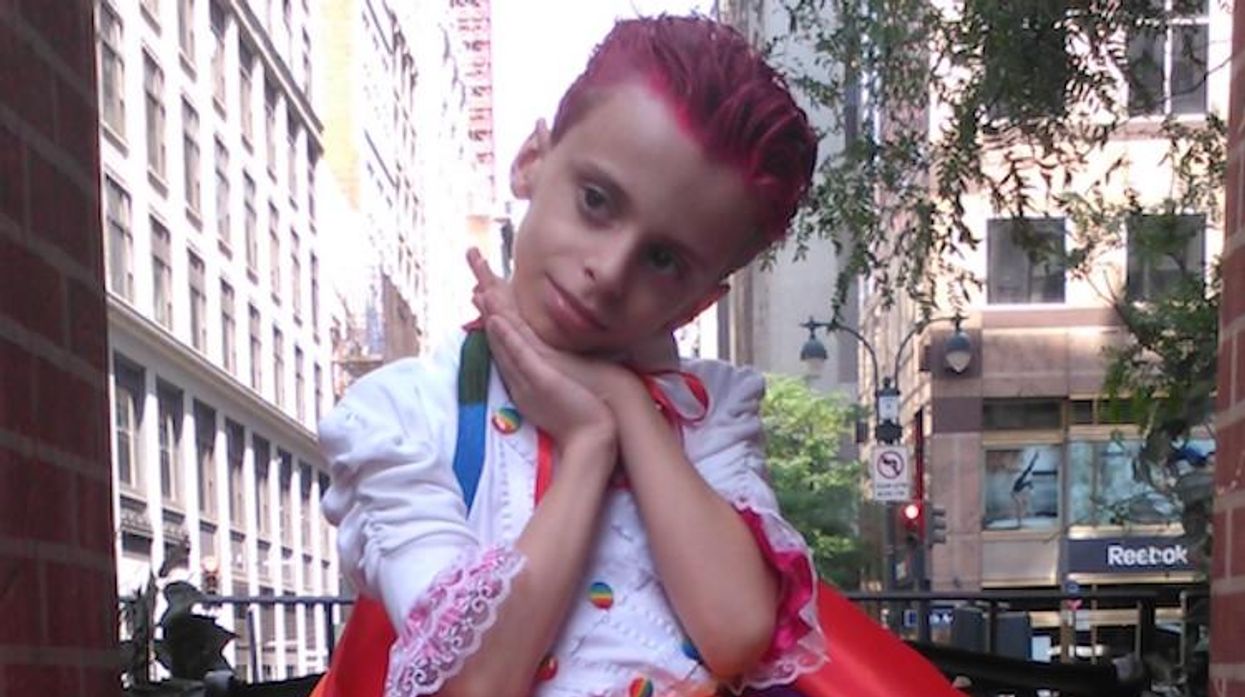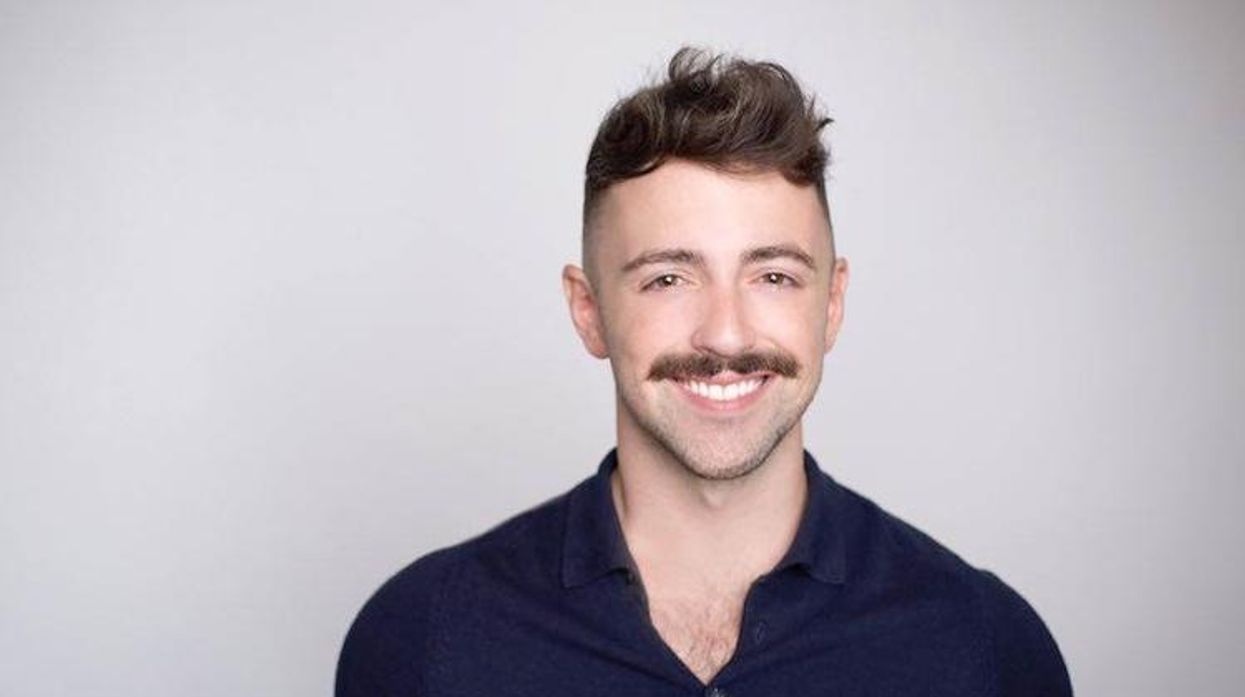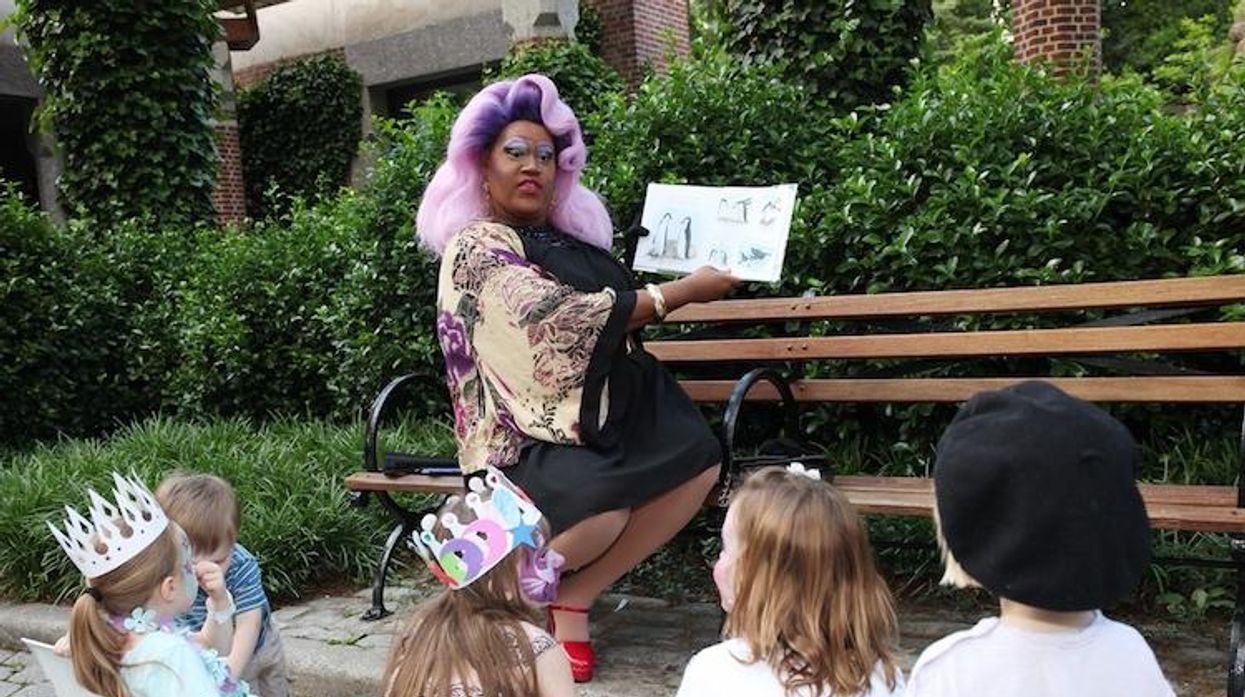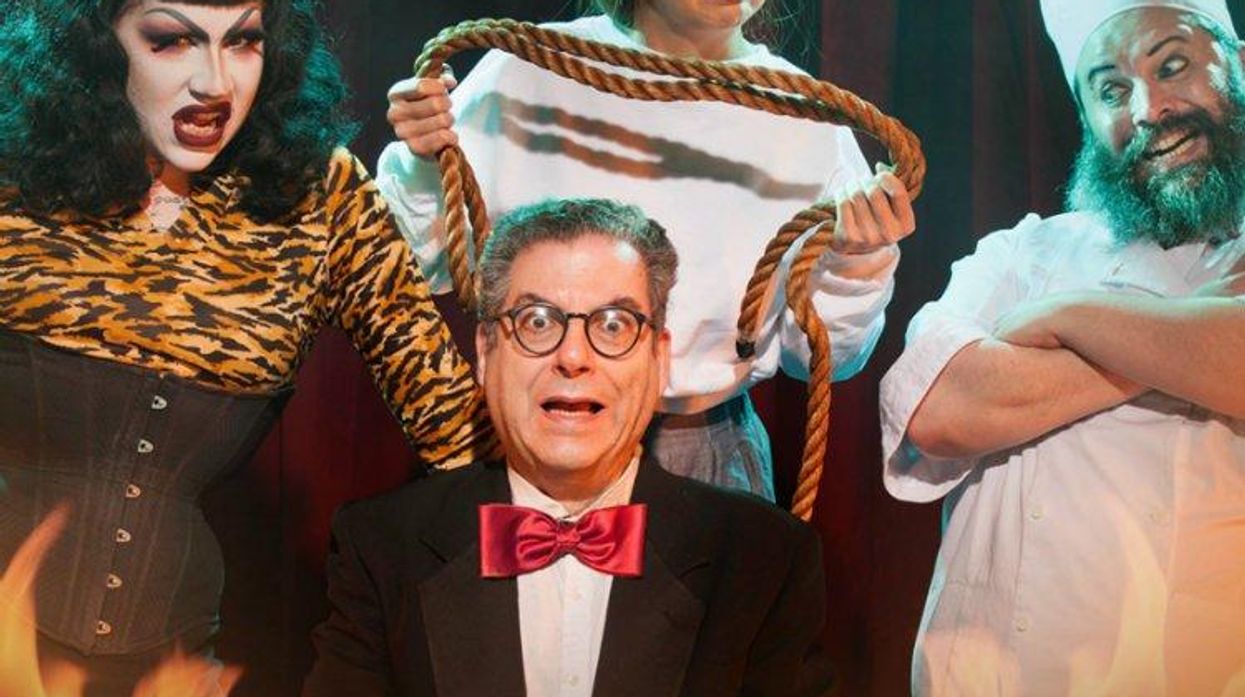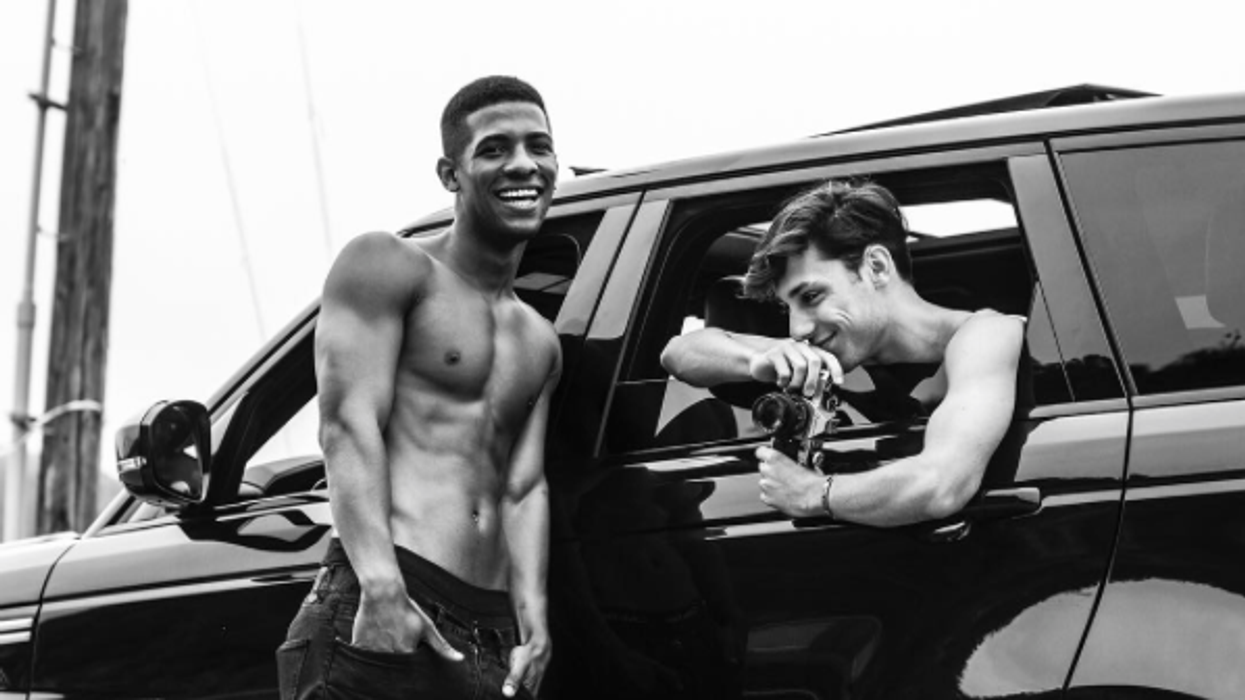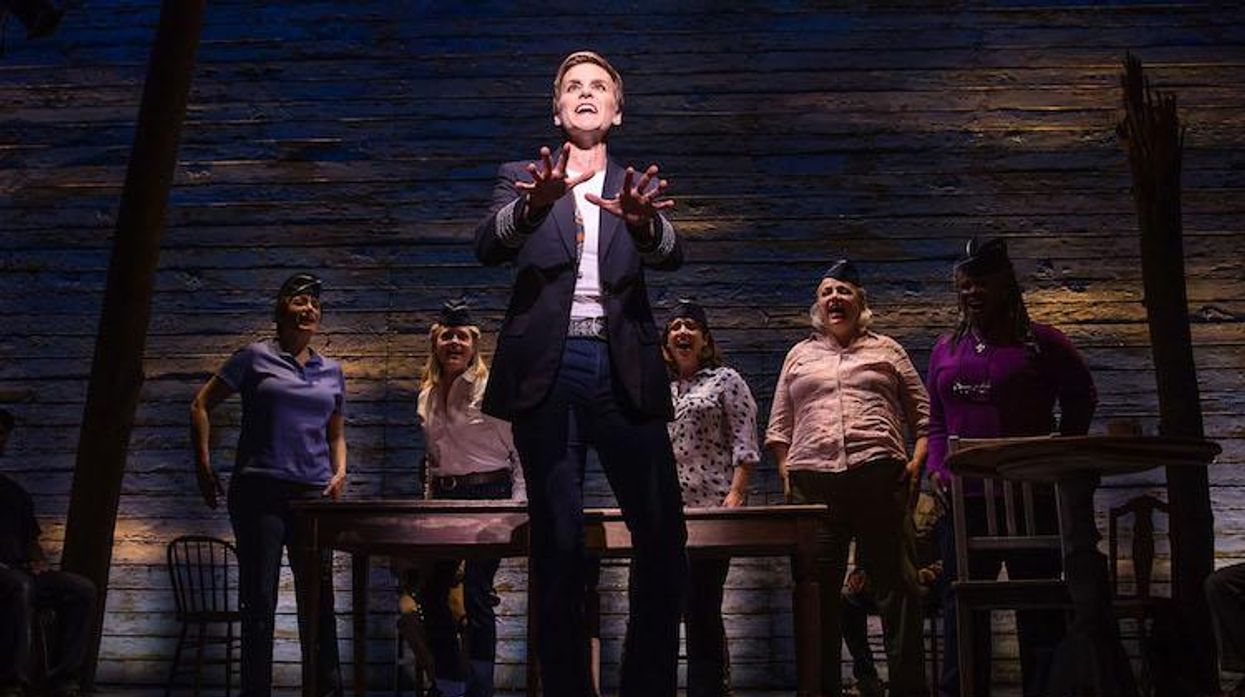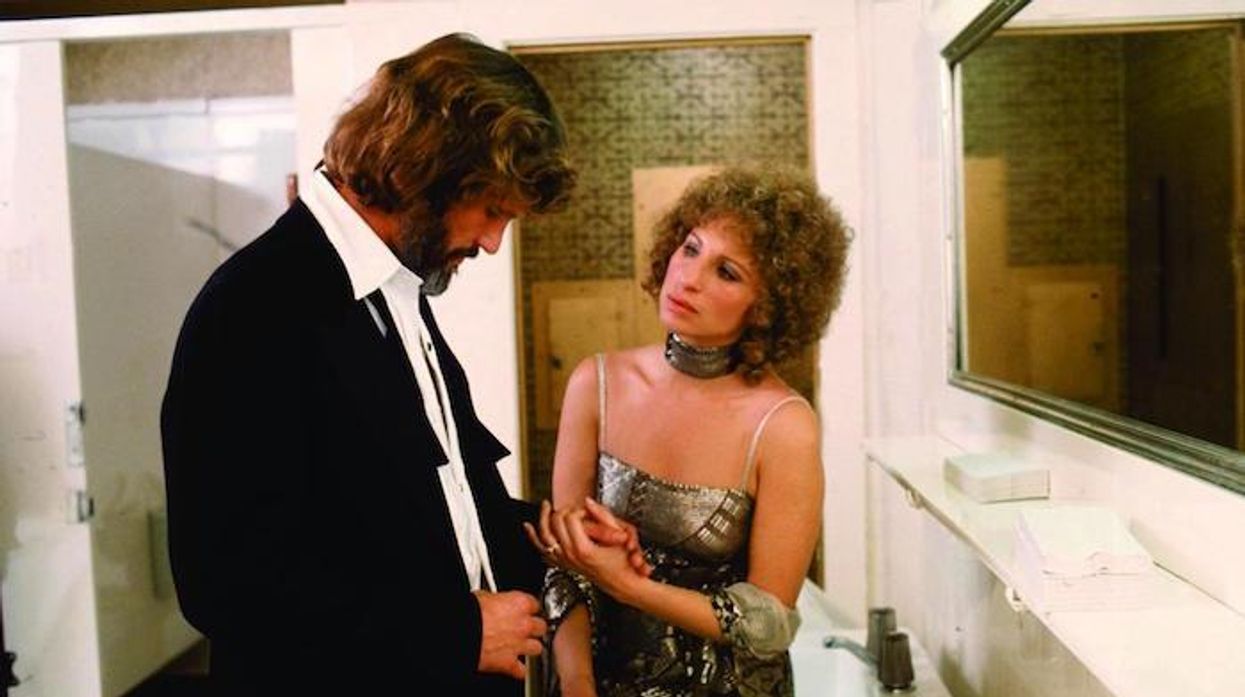Bradley Cooper as John Merrick in the 'Elephant Man' on Broadway | Photo by Joan Marcus
Bradley Cooper is the Elephant Man in the room. In a big year for Hollywood hunks returning to the theater, the star of Silver Linings Playbook, American Hustle, and the imminent American Sniper has swung back to Broadway in a tasteful and effective production of Bernard Pomerance's The Elephant Man. That Tony-winning 1979 play belongs to the same school as works like The Miracle Worker, Equus, and Agnes of God--dramas in which a professional sets their sights on saving a societal outcast, while grappling with universal themes of faith and meaning.
The Elephant Man is John Merrick, the real life 19th-century British man who developed severe physical abnormalities that led to his being exhibited around the UK as a freak before a surgeon, Frederick Treves, changed everything by taking control of his well being. David Lynch's 1980 movie version of Merrick's story went for elaborate prostheses that were realistically grotesque, making for an eerily compelling look at a deformed man begging for compassion. But the stage play has always been a vehicle for a really hot looking guy to contort his body and face and talk in guttural tones to merely suggest the deformity through acting chops and chutzpah. Through the years, I've seen Philip Anglim, David Bowie, and Billy Crudup take on this challenge--all succeeding in their own way. And Cooper joins their ranks--whether shirtless in shorts or suited up and socialized--as a misunderstood creature whose heart turns out to be as big as his face, LOL.
Scott Ellis's production is presented in mostly dark, understated hues, never clobbering you with the "Who's the real freak here?" theme. Alessandro Nivola is persuasive as Dr. Treves, who is seen lecturing about Merrick's abnormality (and showing slides of Merrick's actual physique) while painfully realizing that he can't really help Merrick that much, though he seems to find his own humanity while trying. Patricia Clarkson does nicely as an actress Treves brings in to engage Merrick, whom she finds to be surprisingly romantic and sensitive. (She bares her breasts to him in a touching moment of generosity. Today's actresses would have gone farther, I'm sure.) And though Cooper's performance doesn't electrify, he exhibits a healthy sense of wit and commitment. At one point, when Clarkson moves toward him in a loving way, you start to squirm a little before reminding yourself, "But he's a gorgeous man!" Ah, the power of suggestion.
I'D LIKE TO THANK ALL THE LITTLE PEOPLE...
Bradley is not only in the Tony race, he's a player in the Oscar sweepstakes too, thanks to his performance as a real-life Navy SEAL in Clint Eastwood 's American Sniper. (In yet another act of physical transformation, Bradley gained 40 pounds for the part. Oscar loves that sort of thing! Remember Shelley Winters? Hello?) And I'm on top of the whole race--not only because I've been gaining 40 pounds myself thanks to all the free food at various meet-and-greets, but because watching big name actors pitted against each other for honors is one of the most sadistically fun spectator sports of the year. This year, I adored Boyhood, Birdman, Whiplash, and of course The Imitation Game. (Read my Advocate article about why it's important to have a film like this, which focuses on a gay hero's travails and triumphs. Hollywood didn't always used to be so gay-generous--though, as usual, there are valid complaints that it's not gay enough.)
I was also impressed by Selma, the Ava DuVernay-directed look at the moment in the 1960s when Martin Luther King pressured President Lyndon Johnson to address the fact that black people were being denied the right to vote in the South. At a special screening of the film, I remarked to DuVernay: "I know gay people haven't had to fight for the right to vote, but still, aren't there parallels between the various civil rights movements?" "Yes," she said, "there are parallels with the oppressed movements--LGBT, the women's movement, the brown movement, immigrants, and so on." She added that activist Bayard Rustin, who was gay, is someone she insisted on including in the film, when it came time for a rewrite. (Rustin is played by Tony winner Ruben Santiago-Hudson.) "I made sure he was there," she told me. "He was a huge icon in the civil rights movement and he was out, and was a close confident of Dr. King. But we don't touch on anyone's personal life in the movie [except for King]. He should get his own movie." I pray writer/director Patrik-Ian Polk gets to work on it pronto.
There's not much of an LGBT angle to The Theory of Everything, since it's a movie about hetero-fallible Stephen Hawking and his wife, Jane, trying to survive the challenges of the brilliant physicist's life-altering illness. But Eddie Redmayne, who plays Hawking, is about to have the most transsexual year of his life so far. Eddie's wrapped Jupiter Ascending, written and directed by Andy Wachowski and his trans sister, Lana Wachowski. And he's going to star in The Danish Girl, about the first person to undergo gender reassignment surgery in the 1930s. (No, he won't turn into Felicity Huffman. He's playing the whole part, before and after.)
At a reception for The Theory of Everything, I met Felicity Jones--who plays Hawking's devoted wife--and only felt it fair to ask about that film, not the transsexual stuff Eddie's getting involved in. I asked Jones if the ex-Mrs. Hawking ever resented becoming Stephen's caregiver. "I don't think she thought of it that way," said the British actress, who lives in Brooklyn. "She loved this man. She was always focused on Stephen. There was no vanity. She was a strong, powerful woman and a support system. But she was also vehement about her own academic life. And she's not just a saint. She has her own sexual identity." Thanks to all of Jane's multi-textures, Jones became so immersed in the role that she said by the end of the filming, "I thought, 'I'm finally remembering who I am again!' "
But back to the gay stuff. In Angelina Jolie's well crafted tale of true-life survival, Unbroken, the prisoners get to enjoy a drag production of Cinderella featuring gussied-up members of their own ranks. I guess the Japanese captors thought, "There's nothing more punishing than bad drag," lol.
Also getting a big Oscar push, Into The Woods has sent out a lavish packet to awards voters including a written-out score signed by Stephen Sondheim himself and autographed color photos of individual cast members, from Meryl on down. They're already becoming like gay trading cards.
With a pack of them folded into my pocket, I headed off to a swanky MoMA lunch for Christopher Nolan's Interstellar, the intricately plotted interplanetary father-daughter saga featuring a cast of gadgets and Oscar winners. I loved the head-spinning trippiness of the film, so I asked Nolan if it might possibly be useful as an alternative to drugs for certain people. "I don't do drugs," he responded, amiably, "but yeah, this is probably my version of it. I like to make films that are an experience. This one is definitely intended to be an experience." And it truly is. You don't even need the hard stuf--like Lexapro--thanks to Christopher Nolan.
And finally, I thought some serious meds might be in order when I heard that in January, we'll have an Al Pacino film called The Humbling, which is about a suicidal actor who has an affair with a much younger lesbian. But don't worry: Press materials assure that "the relationship causes chaos." Yay!


